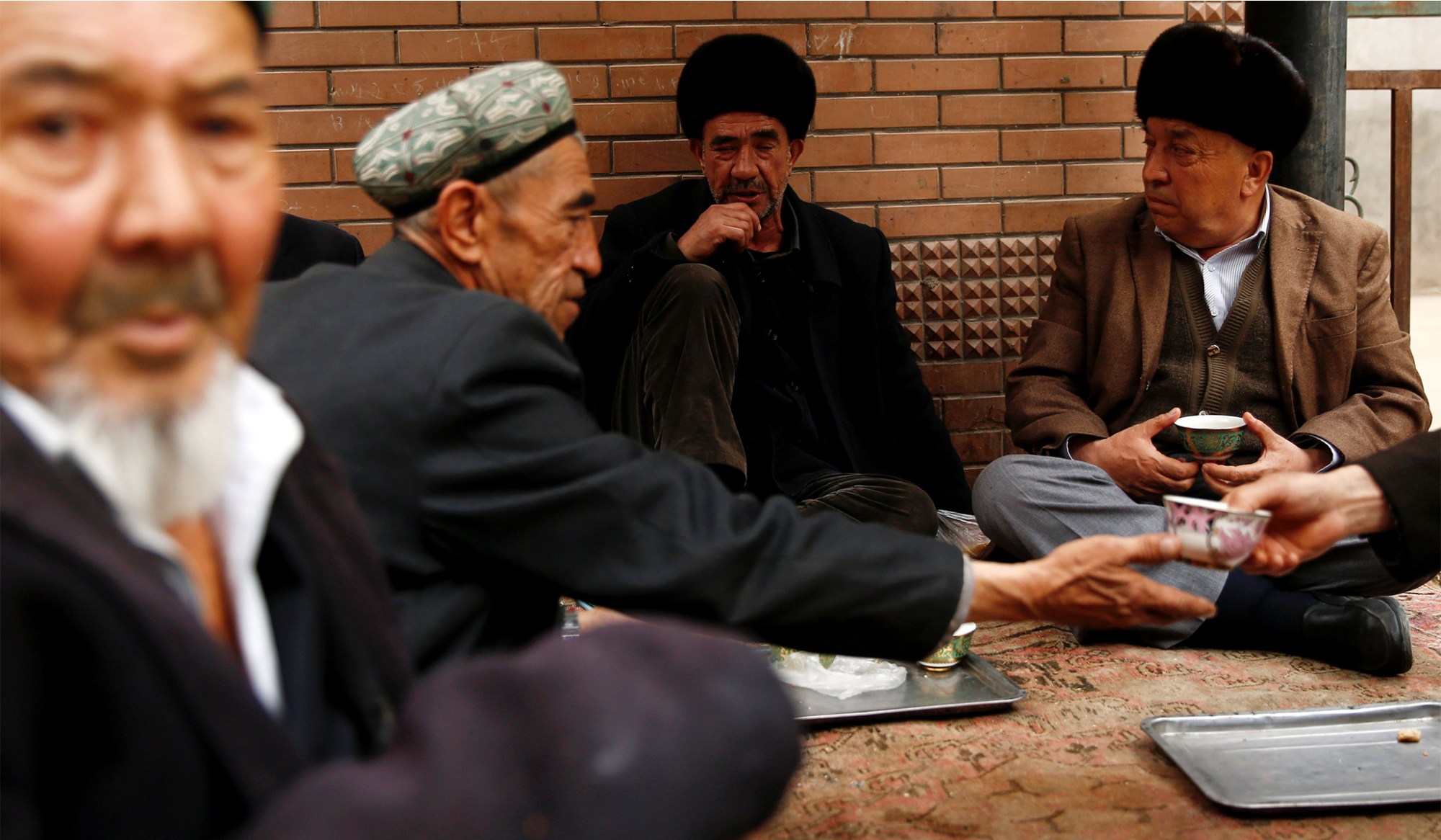The Persecution of the Uyghurs

National Review, 24 August 2018
 By National Review — It is the secrecy that makes whatever is happening in Xinjiang so sinister. The silence of the Xi Jinping regime is broken only by euphemism, which raises suspicions that something epochal, horrible is going on. The population of 12 million Uyghurs seems cowed. The province is under martial rule. Anyone attracting attention is liable to wind up in — where, exactly? A concentration camp? A penal colony? Or, as the People’s Republic of China would have it, a “vocational training center”?
By National Review — It is the secrecy that makes whatever is happening in Xinjiang so sinister. The silence of the Xi Jinping regime is broken only by euphemism, which raises suspicions that something epochal, horrible is going on. The population of 12 million Uyghurs seems cowed. The province is under martial rule. Anyone attracting attention is liable to wind up in — where, exactly? A concentration camp? A penal colony? Or, as the People’s Republic of China would have it, a “vocational training center”?
American officials estimate that 1 million Uyghurs have been incarcerated in these facilities, located in a province in northwest China named the Xinjiang Uyghur Autonomous Region. The XUAR, or alternatively, East Turkestan, is the historic home of a group of non-Chinese, ethnically Turkic Muslims called Uyghurs. Since the Qing dynasty reasserted control of the region in the 19th century, relations between the Uyghurs and the Chinese have been tumultuous. But the mass detention and “re-education” of them, part of China’s ongoing effort to Sinicize the province, is a step down a dark and dangerous path.
The history of the Uyghurs in China is that of a restive minority generating fears among the Chinese majority that the fringe of their empire is pulling away, and the Chinese responding with brutal consolidation. Uyghurs tried to declare independence from the Republic of China multiple times before the Communists came to power; under Mao, there was no shortage of Red Guard violence bent on stamping out their religious practice. More recently the PRC encouraged Han Chinese to move to Xinjiang, hoping to dilute the Uyghur presence in the region. And it has exploited international fears of Islamic terrorism as a pretext to build an immense surveillance state that involves DNA collection, cell-phone monitoring, and the installment of facial-recognition software.
Now authorities are using this surveillance apparatus to round up and incarcerate Uyghurs suspected of dissident activity or excessive religiosity. Reporters and international officials have been barred from the re-education camps and, in the case of BuzzFeed reporter Megha Rajagopalan, ejected from the country, so the information that is available is piecemeal. But we know from researchers and eyewitnesses that conditions are dire: Prisoners are made to recite political propaganda and renounce Islam, some have been tortured, and others have died soon after being released. The family members of those incarcerated have not been able to contact them. The scale of the detention campaign is only growing.
Veteran China scholars worry that conditions could deteriorate. If Uyghurs begin to resist or protest, would the PRC respond with deadly force? Regardless, Chinese authorities are engaged in the mass, arbitrary detention of an ethno-religious minority group as part of a deliberate effort to stamp out their way of life. This is a precarious situation that demands a robust international response.
Major American political figures should follow Senator Marco Rubio’s lead and work to bring attention to the issue. The U.S. should invoke Magnitsky Act provisions to restrict the financial assets of Chinese government officials who have a hand in this policy and take reciprocal measures if China continues to restrict travel to Xinjiang and expel American journalists. Economic sanctions should be on the table, and the U.N. should launch an investigation into the matter. At a time when China is trying to solidify alliances in Southeast and Central Asia, expand its sphere of influence, and avoid punishments for its economic misbehavior, a unified international response led by the U.S. could have an effect.
Beijing wants those in the periphery of China — Muslims who are not Chinese, Tibetans who follow Buddhism — to be its vassals. On Xinjiang as on other matters, China will use its economic clout to coax the rest of the world into mouthing its officially sanitized terminology and looking away in silence. But there should be no explaining away or ignoring the repression of the Uyghurs, and Americans should take the lead in working to stop it.

